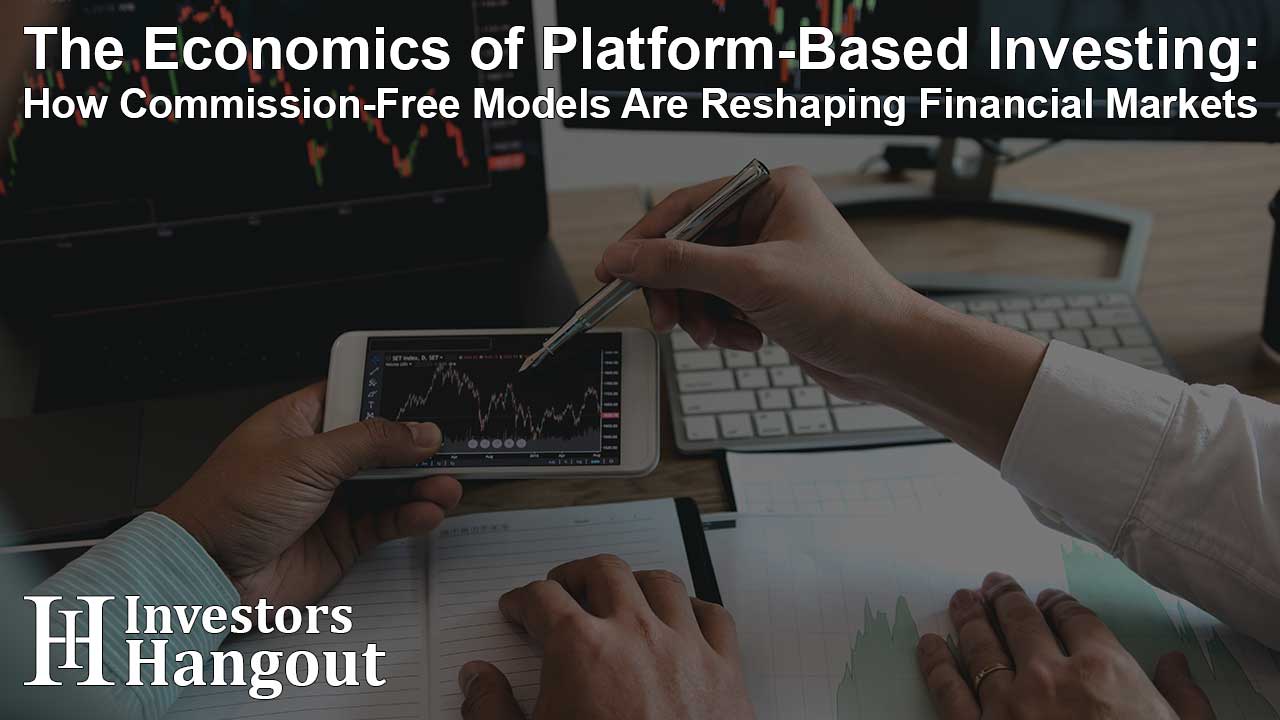The Economics of Platform-Based Investing: How Commission-Free Models Are Reshaping Financial Markets

The financial services landscape has undergone a seismic shift with the emergence of commission-free trading platforms and peer-to-peer economic models. This transformation extends beyond traditional securities trading into alternative investment sectors, including human capital and service-based marketplaces.
Market Disruption Through Fee Elimination
Commission-free models have fundamentally altered investor behavior and market dynamics. When major brokerages eliminated trading commissions in 2019, daily trading volume increased by 35% within six months. This trend demonstrates how fee structures directly impact market participation and liquidity.
The elimination of intermediary fees has proven particularly beneficial for smaller investors and frequent traders. Research from the Securities Industry and Financial Markets Association shows that commission-free trading has increased market participation among investors with portfolios under $50,000 by 127%.
Alternative Investment Platforms and Direct Engagement
Beyond traditional securities, innovative platforms are applying commission-free models to alternative investments. Service-based marketplaces, for example, allow direct negotiation between service providers and clients without platform fees affecting final pricing.
Professional service platforms operating on this model have seen remarkable growth. The Freelance platform that eliminates commission structures enables service providers to retain full project value while offering clients direct price negotiation capabilities. Jobbers.io exemplifies this approach, demonstrating how removing intermediary fees creates more efficient markets for professional services while improving outcomes for both service providers and clients.
Economic Efficiency and Market Transparency
Commission-free models create greater market transparency by eliminating hidden costs that can obscure true investment returns. When all parties understand the complete cost structure, market efficiency improves significantly.
In service-based markets, this transparency allows for more accurate price discovery. Clients can evaluate proposals based purely on value proposition rather than factoring in platform fees, leading to more efficient resource allocation.
Impact on Traditional Financial Intermediaries
Traditional financial intermediaries are adapting to commission-free competitive pressures by focusing on value-added services rather than transaction-based revenue. This shift has improved overall service quality while reducing costs for end users.
The success of commission-free models in various sectors, including freelance jobs online, demonstrates the broader economic principle that reducing friction in transactions increases overall market activity and efficiency. When service providers can retain their full project value without platform fees, market participation increases significantly.
Investment Strategies in Commission-Free Environments
Investors operating in commission-free environments can implement more sophisticated strategies without cost constraints. This freedom enables:
Frequent Rebalancing: Portfolio adjustments without transaction cost concerns Dollar-Cost Averaging: Regular investments without fee accumulation Tactical Allocation: Short-term strategic moves based on market conditions Diversification: Broader asset allocation without cost barriers
Future Implications for Market Structure
The continued evolution toward commission-free models suggests a future where transaction costs approach zero across various asset classes. This trend could fundamentally reshape portfolio management, investment advice, and market microstructure.
Emerging technologies including blockchain and artificial intelligence are likely to further reduce transaction costs and intermediary requirements, creating additional opportunities for direct market participation.
FAQ Section
Q: How do commission-free platforms generate revenue? A: Most utilize payment for order flow, interest on cash balances, premium service tiers, and partnership arrangements rather than direct transaction fees.
Q: Are commission-free platforms safe for investors? A: Yes, legitimate platforms maintain the same regulatory protections as traditional brokerages, including SIPC insurance and regulatory oversight.
Q: What are the hidden costs in commission-free trading? A: Potential costs include wider bid-ask spreads, payment for order flow impacts, and fees for premium services or special order types.
Q: How has commission-free trading affected market volatility? A: Studies show mixed results, with increased participation balanced by better price discovery and improved liquidity in most market conditions.
Q: Should investors use multiple commission-free platforms? A: Diversifying across platforms can provide access to different investment options, research tools, and backup access, but requires careful account management.
About The Author
Contact Owen Jenkins privately here. Or send an email with ATTN: Owen Jenkins as the subject to contact@investorshangout.com.
About Investors Hangout
Investors Hangout is a leading online stock forum for financial discussion and learning, offering a wide range of free tools and resources. It draws in traders of all levels, who exchange market knowledge, investigate trading tactics, and keep an eye on industry developments in real time. Featuring financial articles, stock message boards, quotes, charts, company profiles, and live news updates. Through cooperative learning and a wealth of informational resources, it helps users from novices creating their first portfolios to experts honing their techniques. Join Investors Hangout today: https://investorshangout.com/
